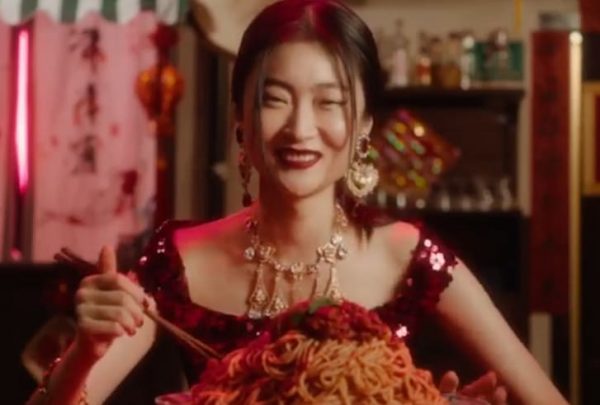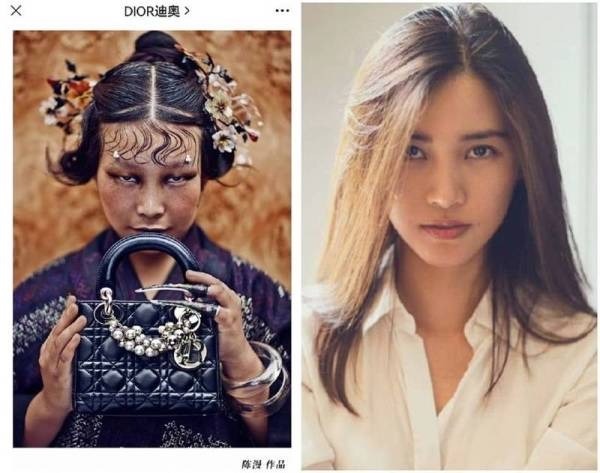An exhibition in the luxurious West Bund Art Center of Shanghai has come under fire in China after an ad was harshly criticized for featuring a model in a way that many felt was a distasteful and disrespectful portrayal of Chinese culture.
The ad was part of French luxury brand Dior’s newest campaign in Asia. The model was seen dressed in a traditional costume and holding a Lady Dior bag, but images of the ad were quickly pulled after Chinese users made their opinions of the ad and its photographer, Chen Man, heard on social media.
Many users decried the ad for lacking aesthetic taste, using words like “zombie-like,” “nightmare fuel,” or “hellish” to describe the work. “Since when did bigshot artists work for the underworld?” one sarcastic comment reads.
Another accused Chen of “getting on her knees to uglify her own people.”
Others claimed the ad was a reflection of racism in the West. “They use the discrimination against Asians in order to reflect the nobility of this brand. Who said it is art? I think it is an inborn slavishness,” one user wrote.
Success
You are now signed up for our newsletter
Success
Check your email to complete sign up
State-owned newspaper Beijing Daily also slammed the photo for “smearing Asian women,” and claimed the aesthetic tastes had gone too far.
“Their behaviour has indicated their intention of uglifying Chinese women and distorting Chinese culture,” the newspaper said on Nov. 17.
Chen is known for images featuring “spooky eyes, gloomy face, and Qing-dynasty-styled nail armour,” according to Beijing Daily.
Chen, who hails from Beijing, has had her work featured in many high-end publications such as Vogue magazine and MAC cosmetics.
Dior did not make any official comment regarding the mishap but it confirmed to trade publication Business of Fashion that the photograph had been removed from the exhibition. The brand also took down the photo from its account on Chinese social media platform Weibo.
This isn’t the first time a prominent fashion company has found itself in hot water over its portrayal of Chinese models.
In 2019, Italian luxury brand Dolce & Gabbana found itself in a PR nightmare after it released a video of Chinese model Zuo Ye struggling to eat pizza and cannolis with chopsticks.
The ad, which featured Zuo wearing makeup that gave her the appearance of having very narrow and slanted eyes, was so poorly received that consumers rallied for a total boycott of the brand in China. Some retailers pulled the brand from its shelves, and Dolce & Gabbana was also compelled to cancel a high-end fashion show in Shanghai following the backlash.
Zuo said the controversy surrounding the ad nearly “killed her modeling career,” and asked for forgiveness and understanding after feeling guilty and ashamed following the release of the video.

According to a statement she released on her Weibo account in 2019, she knew the shoot was about trying Italian delicacies but felt very awkward when she was asked to eat food like pizza and pasta with chopsticks. Zuo said she went along with it in fear of upsetting the director as she knew working for an international brand of Dolce & Gabbana’s prominence was a huge opportunity and stepping stone for her career.
Critics also pointed out an existing culture of toxicity and powerlessness where models are often asked to do things they might not be comfortable doing, but are afraid to speak up in fear of jeopardizing their careers.
More recently, well-known global brands including H&M and Nike sparked national outrage after pledging not to use cotton from the Xinjiang region of China because of alleged claims of forced labor and human rights abuse. According to human rights groups, over a million Uyghurs of Xinjiang are being forcefully kept in concentration camps across Western China.
BBC reported that crimes against humanity or even potential genocide is occurring in these camps.














